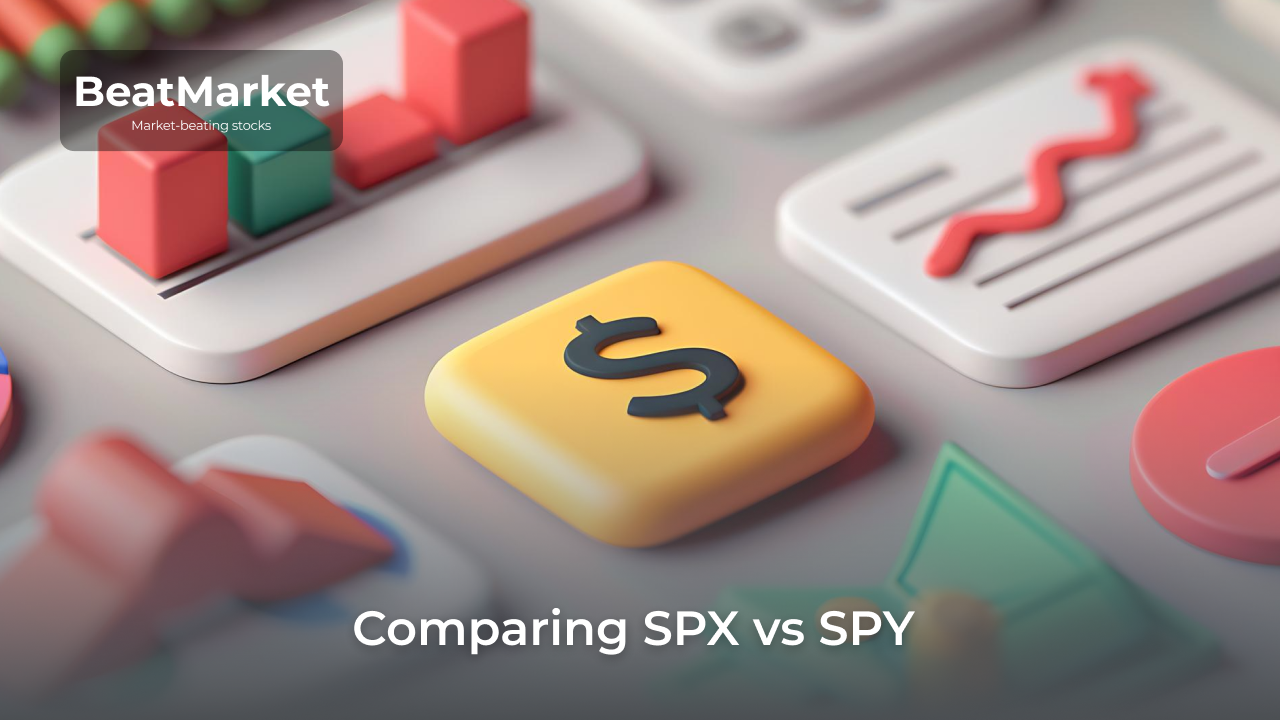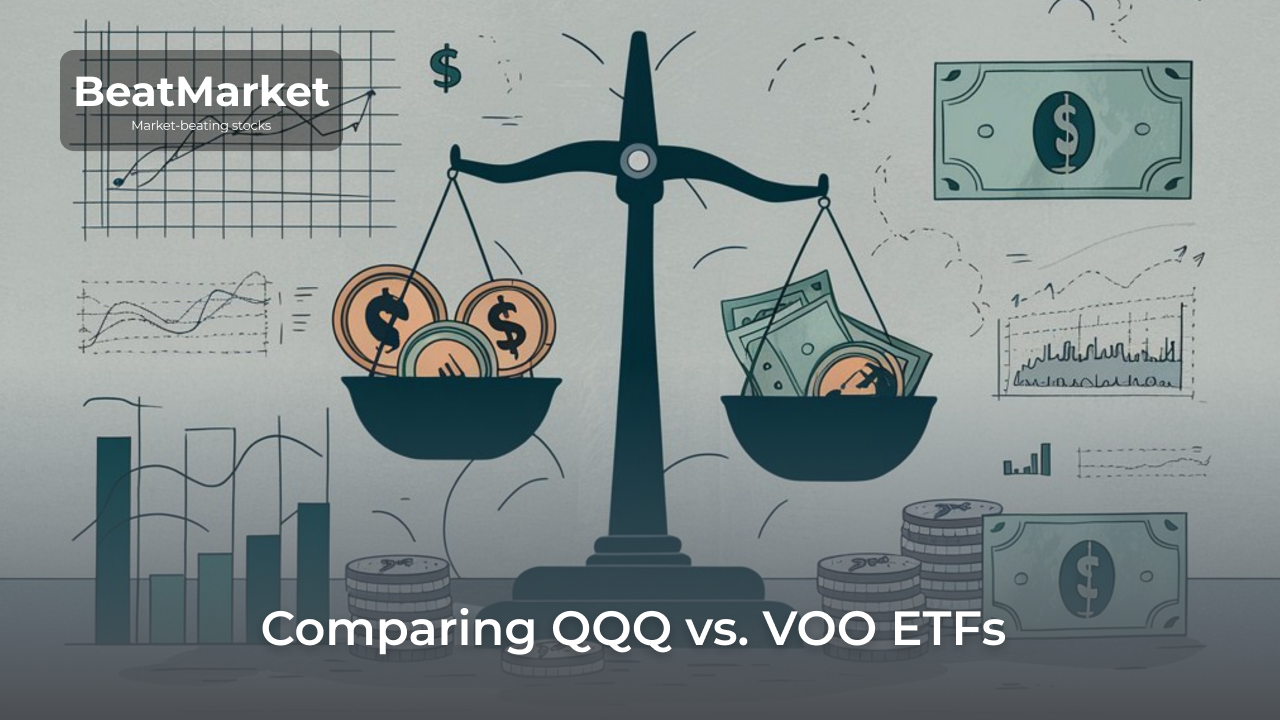When it comes to investing in the stock market, choosing the right exchange-traded fund (ETF) can be a pivotal decision. ETFs offer investors exposure to a diversified portfolio of assets, making them an attractive option for both beginners and seasoned traders. Two prominent ETFs that frequently find themselves in the spotlight are VUG (Vanguard Growth ETF) and QQQ (Invesco QQQ Trust). In this article, we will delve into the world of VUG and QQQ, exploring their differences, similarities, and performance metrics, all in the quest to answer the burning question: which one is the better investment option for your portfolio?
VUG and QQQ are both highly regarded ETFs, but they have distinct investment strategies, holdings, and historical performance records. Understanding these differences and similarities is essential for investors seeking to make informed decisions about where to allocate their hard-earned capital. Whether you’re a growth-focused investor or simply looking for a solid addition to your investment portfolio, the VUG vs QQQ showdown will shed light on which of these ETFs aligns better with your financial goals and risk tolerance. So, let’s dive in and uncover the nuances that set VUG and QQQ apart in the competitive world of ETF investing.
Table of Contents
Is QQQ the Best Growth Fund? (Quick Overview)
Here’s a concise overview of the Invesco QQQ Trust (QQQ):
- Ticker: QQQ
- Assets: $205.38 billion
- Expense Ratio: 0.20%
- Yield: 0.57%
- YTD Return: 35.64%
- Inception Date: March 10, 1999
QQQ tracks the NASDAQ-100 Index, focused on tech and innovation. With impressive YTD returns and a low expense ratio, it’s appealing for growth investors. However, its volatility and sector concentration mean it may not suit every investor’s goals.
Pros:
✔ Exposure to leading tech companies.
✔ Low 0.20% expense ratio.
Cons:
- High volatility.
- Concentration in the tech sector.
H3 Holdings
Is VUG like QQQ? (VUG Quick Overview)
Let’s explore the general characteristics of the Vanguard Growth ETF (VUG):
- Ticker: VUG
- Assets: $182.53 billion
- Expense Ratio: 0.04%
- Yield: 0.59%
- YTD Return: 29.23%
- Inception Date: January 26, 2004
VUG is an ETF designed to track the performance of the CRSP US Large Cap Growth Index. This index represents large-cap U.S. stocks with a growth orientation. VUG is known for its low expense ratio, making it a cost-efficient choice for investors. It focuses on companies with strong growth potential and has delivered solid YTD returns. However, it’s essential to note that VUG has a different investment approach and composition compared to QQQ, which primarily tracks the NASDAQ-100 Index dominated by tech stocks. VUG offers more diversified exposure to large-cap growth stocks across various sectors.
Pros:
✔ Low expense ratio of 0.04%.
✔ Provides exposure to large-cap U.S. growth stocks.
✔ Has a solid YTD return of 29.23%.
✔ Offers diversification across various sectors.
Cons:
- Limited focus on tech compared to QQQ.
- Beta indicates it may still exhibit some volatility.
- Smaller yield compared to some other ETFs.
H3 Holdings
VUG vs. QQQ Comparison
When considering investment options in the ETF space, it’s crucial to compare and contrast the characteristics of different funds to align your investment strategy with your goals and risk tolerance. Here, we’ll explore the similarities and differences between the Vanguard Growth ETF (VUG) and the Invesco QQQ Trust (QQQ).
Similarities:
- Growth Focus: Both VUG and QQQ are growth-oriented ETFs, which means they primarily invest in companies with strong growth potential. They target stocks expected to increase in value at an above-average rate compared to the broader market.
- Large-Cap Exposure: Both funds focus on large-cap stocks. VUG seeks growth in U.S. large-cap companies, while QQQ tracks the performance of the NASDAQ-100 Index, which consists of 100 of the largest non-financial companies listed on the NASDAQ Stock Market.
- Low Expense Ratios: One shared advantage is their low expense ratios. VUG has an expense ratio of 0.04%, and QQQ’s is slightly higher at 0.20%. These relatively low costs can be appealing to cost-conscious investors.
Differences:
- Sector Composition: The most significant difference lies in their sector compositions. QQQ is heavily concentrated in the technology sector, with a substantial allocation to companies like Apple, Microsoft, and Amazon. In contrast, VUG offers a more diversified approach, spanning various sectors, including technology, healthcare, and consumer discretionary.
- Volatility: Due to its tech-heavy focus, QQQ tends to exhibit higher volatility than VUG. This means that QQQ may experience more significant price fluctuations, both on the upside and downside, compared to the more diversified VUG.
- Performance Metrics: Historical performance metrics can differ significantly between the two ETFs, primarily due to their sector allocations and market dynamics. Investors should review past performance data to assess which aligns better with their investment objectives.
- Yield: VUG offers a slightly higher yield compared to QQQ. While neither ETF is typically chosen for their income generation, this may still be a consideration for some investors.
VUG vs. QQQ: Types of Investors
Investors’ preferences for Vanguard Growth ETF (VUG) or Invesco QQQ Trust (QQQ) align with their goals and risk profiles:
VUG (Vanguard Growth ETF) Preferred By:
- Diversification Seekers: Those who want a broad sector mix.
- Long-Term Investors: Suitable for those with a patient outlook.
- Income-Oriented: Offers a slightly higher yield.
- Risk-Averse: Provides risk mitigation through diversification.
QQQ (Invesco QQQ Trust) Preferred By:
- Tech Enthusiasts: Offers concentrated exposure to tech giants.
- Aggressive Growth Investors: Better suited for those comfortable with higher volatility.
- Short-Term Traders: Liquid and attractive for short-term strategies.
- Trend Followers: Attracts investors who believe in tech’s ongoing dominance.
Choose the ETF that aligns with your objectives, risk tolerance, and market outlook. Consulting a financial advisor is advisable for personalized guidance.
QQQ vs VUG Structure and statistics
To choose between Invesco QQQ Trust (QQQ) and Vanguard Growth ETF (VUG), consider their key features:
| QQQ | VUG | |
| Objective | Tracks the NASDAQ-100 Index, mainly tech companies | Follows CRSP US Large Cap Growth Index, diversified |
| Expense Ratio | 0.20% | Very low at 0.04%. |
| Sector Focus | Heavily tech-oriented | Across various sectors |
| Performance | Historically strong growth | Steady growth, large-cap focus |
| Volatility | Higher due to tech concentration | Some, but mitigated by diversification |
| Yield | Approximately 0.57% | Around 0.59% |
| Net Assets | $205.38 billion | $182.53 billion |
Investors should choose based on sector preference, risk tolerance, and investment objectives.
QQQ vs VUG Performance
Comparing the performance of Invesco QQQ Trust (QQQ) and Vanguard Growth ETF (VUG) is crucial for investors looking to make an informed decision. Here’s a performance overview of these two ETFs:
Invesco QQQ Trust (QQQ):
- Objective: QQQ tracks the NASDAQ-100 Index, focused on tech and innovation companies.
- Historical Performance: QQQ has delivered strong historical returns, particularly due to the growth of tech giants within its portfolio.
- YTD (Year-to-Date) Return: As per the provided data, QQQ boasts a YTD daily total return of 35.64%, reflecting its robust performance.
Vanguard Growth ETF (VUG):
- Objective: VUG follows the CRSP US Large Cap Growth Index, offering diversification across various sectors.
- Historical Performance: VUG has provided steady growth over time, primarily through investments in large-cap growth stocks.
- YTD (Year-to-Date) Return: VUG’s YTD daily total return, according to the information provided, stands at 29.23%, showcasing its consistent growth.
Summary:
- QQQ has historically outperformed VUG, largely driven by its tech-focused holdings.
- VUG offers a more diversified approach, resulting in solid but slightly lower returns.
Both ETFs have shown strong YTD returns, reflecting favorable market conditions.
When assessing performance, investors should consider their risk tolerance, investment horizon, and sector preferences. QQQ may be more appealing to those seeking higher returns but are comfortable with increased volatility, while VUG provides a balanced approach for those prioritizing diversification and steadier growth. Consulting with a financial advisor can help tailor your investment choice to your specific financial goals.
VUG vs. QQQ Risk & Volatility
- VUG: Lower risk and volatility due to diversification, making it a more stable option.
- QQQ: Higher risk and volatility due to tech sector concentration, resulting in more significant price swings.
Choose based on your risk tolerance and investment goals. VUG suits those seeking stability, while QQQ may appeal to those comfortable with higher volatility.
Fee Differences
| ETF | Expense Ratio |
| VUG (Vanguard) | 0.04% |
| QQQ (Invesco) | 0.20% |
VUG has a significantly lower expense ratio compared to QQQ, making it a more cost-effective option for investors. Lower fees can contribute to higher net returns over time.
Final Top Picks: Key Factors to Сhoose
When making your final investment decisions between Vanguard Growth ETF (VUG) and Invesco QQQ Trust (QQQ), consider the following key factors:
- Investment Goals: Determine whether your primary objective is growth, diversification, or a specific sector focus. QQQ offers concentrated exposure to the tech sector, while VUG provides diversification across various sectors.
- Risk Tolerance: Assess your risk tolerance and comfort with volatility. VUG tends to be less volatile than QQQ due to its diversified holdings.
- Time Horizon: Consider your investment horizon. Long-term investors may appreciate VUG’s stability, while short-term traders might be drawn to QQQ’s tech-heavy approach.
- Expense Ratios: Evaluate the cost of each ETF. VUG has a significantly lower expense ratio (0.04%) compared to QQQ (0.20%).
- Performance History: Review historical performance data and YTD returns to gauge which ETF aligns better with your expectations and objectives.
- Sector Preferences: Determine whether you have a strong preference for the technology sector (QQQ) or if you prefer a more balanced portfolio (VUG).
- Diversification: Consider the level of diversification you seek. VUG offers broader sector exposure, while QQQ is tech-focused.
- Income Needs: Assess your need for income. VUG tends to offer a slightly higher yield compared to QQQ.
- Market Outlook: Reflect on your beliefs about future market trends and the performance of tech stocks relative to the broader market.
- Consultation: If uncertain, consult with a financial advisor who can provide personalized guidance based on your individual circumstances and financial goals.
Ultimately, the choice between VUG and QQQ should align with your unique investment objectives and preferences. Both ETFs have their merits, and the decision depends on your risk tolerance, investment horizon, and sector outlook. Make your selection thoughtfully, considering the factors that matter most to your financial future.
FAQ
What is the Vanguard equivalent of QQQ?
The Vanguard equivalent of QQQ would be the Vanguard Information Technology ETF (VGT). VGT also focuses on the technology sector but may have differences in its holdings and sector allocations compared to QQQ.
Is QQQ the best index fund?
Whether QQQ is the best index fund depends on your specific investment objectives and preferences. QQQ is highly regarded for its performance in the tech sector, but whether it’s the best choice for you depends on factors like risk tolerance, diversification needs, and sector preferences.
Is VUG or QQQ Better for Financial Independence?
The choice between VUG and QQQ for financial independence depends on your individual financial goals. VUG offers diversification across sectors and may provide more stability, while QQQ’s tech focus can be more volatile but potentially offer higher growth. The better option depends on your risk tolerance and the role these ETFs play within your overall financial strategy.







